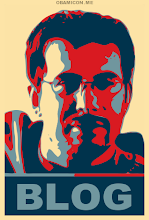 WHAT DOES HER ADDICTION TELLS US ABOUT JOHN McCAIN?
WHAT DOES HER ADDICTION TELLS US ABOUT JOHN McCAIN?The veil of invisibility is finally being lifted from Cindy McCain's battle with addiction.
Tom Gosinski, as former employee of McCain's non-profit in the late 80s and early 90s is speaking out reminiscent of those battle hardened Swift Boaters of 2004.
Gosinski had previously under the radar because of a fear of retribution from the McCain campaign.
In 1993, he bore the brunt of the senator's legal power after speaking to the DEA about Cindy McCain's illegal procurement of prescription drugs from her own non-profit. Extortion charges were never filed against Gosinski and his own wrongful termination suit ultimately fizzled after running out of money.
Surprisingly, Gosinski emerged this week with diary in hand and shocking insights into the possible future first lady private life.
It's quite likely, that Democratic moneybags guaranteed Gosinski legal safety in exchange for slimming Cindy McCain.
Gosinski told the website The Raw Story potentially damaging tidbits that were not reported in today's Washington Post article or the lengthy New Yorker profile on Cindy McCain currently on newsstands.
Most interesting is Gosinski's opinion that McCain is still using.
Even now, more than a decade-and-a-half later, Gosinski says he's not convinced that Cindy has cleaned herself up. Asked if her behavior in public and on the campaign trail this year mirrored his experiences in 1992, Gosinski agreed.An excellent profile of McCain in the New Yorker by Ariel Levy seems to point to the beer distribution heiress being aloof in public, almost sullen and rife with contempt. Could this be what Gosinski is referring to when he notices similarities between Cindy McCain now and then?
"I'm probably looking too closely, [but] I would say yes," he said in an interview. But I've got a biased opinion on that."
In April, at a barbecue for the travelling press that the McCain's hosted at their ranch in Cottonwood, guests said McCain kept herself apart from the group while her husband indulged in his usual japery with the “jerks,” as he affectionately calls reporters. If the group was on the lawn, Cindy moved to the porch. If the porch was invaded, she drifted elsewhere. She was like a bird that stays within view but takes flight if you come too close.Levy also wrote Cindy McCain never once made eye contact with the reporter.
What emerges in all three stories on McCain's addiction is a propensity for shifting stories and downright fabricating others. As Levy describes it, she seems like a woman not based on reality but of television and the silver screen of generations past.
The stories that Cindy McCain tells all tend to have the same elements: secrecy, unilateral action, revelation. She is a kind of blond Lucille Ball in these tales, always up to something, never wanting to be found out by Ricky. But her madcap (if genteel) fifties-housewife sitcom persona is complicated by the more troublesome aspects of these anecdotes. She often leaves out a detail or two, omissions that change the shade of the story.McCain has shaded the truth on many occasions:
- She lied about Mother Teresa's involvement in the adoption of her child in Bangladesh.
- She lied about how she confronted the senator with her desire to adopt the child. She had the child on the tarmac and McCain simply said, "Ok"
- She muddles the dates and circumstances of first meeting the dashing military man, John McCain, 17 years her senior.
- Once denied the existence of a prenuptial agreement with the future senator.
- Made unclear if John McCain previously knew about her early addiction. Sen. McCain once removed his wife from the hospital before word leaked. This occurred before the tale of her parents confronting her about her addiction.
An expert told the paper that McCain could have faced a 20-year sentence for her actions. Instead, Washington lawyer, John Dowd, also of Pete Rose fame, used his powerful connections to get McCain out of legal hot water, according to the story and corroborated by The Raw Story article.
This fact brings a certain amount of credence to the severity of her actions and further allows the media to focus on its meaning and merits within this election.
These stories run counter to the campaign rhetoric that says the McCain's are just like ordinary Americans. Far more than her wealth and the perception that she became the senator's so-called political sugar mama or the flub that had John McCain callously forgetting how many homes he owned; this snapshot of a sad, lonely and despondent woman portrays McCain as a nowhere close to the profound protector of the family values that Republicans so value.
What does it say about the character of the would-be-president of the United States, if his wife says she never saw him but for weekends as she lay depressed and in a solitude while her children were raised in dysfunction? Is McCain not only a political opportunist, but one in every facet of life?



No comments:
Post a Comment